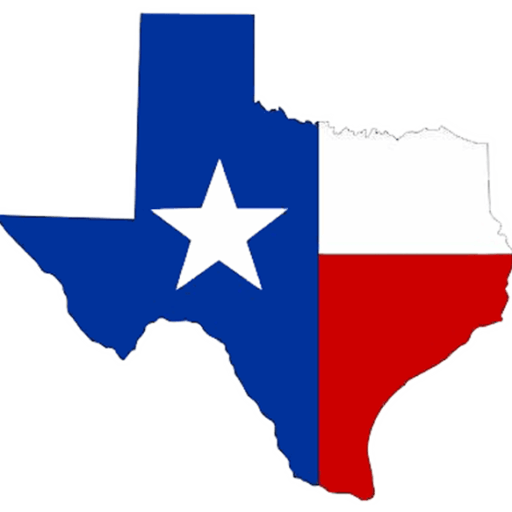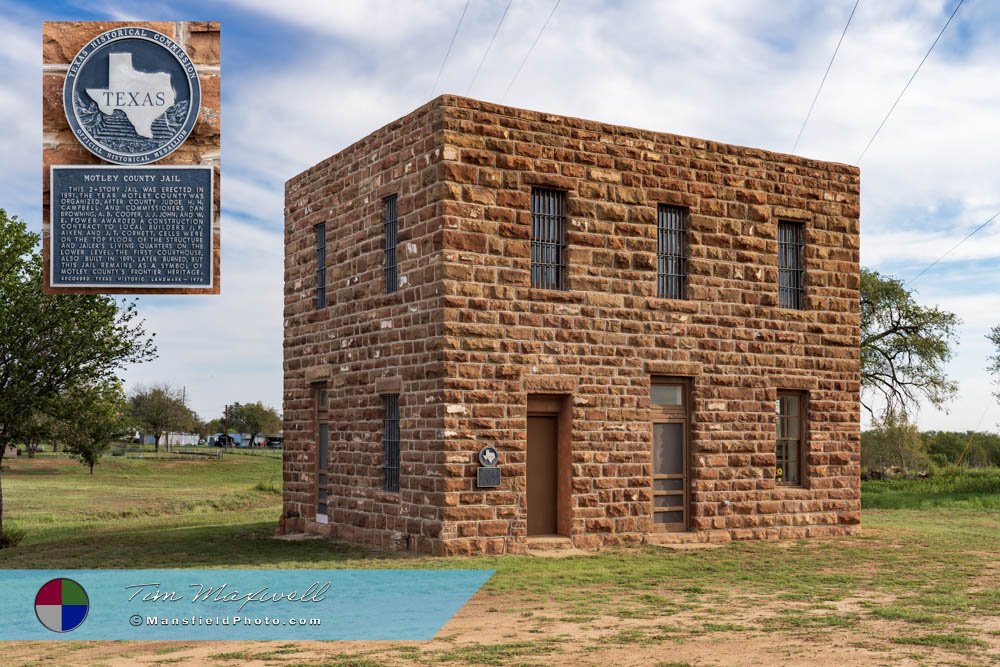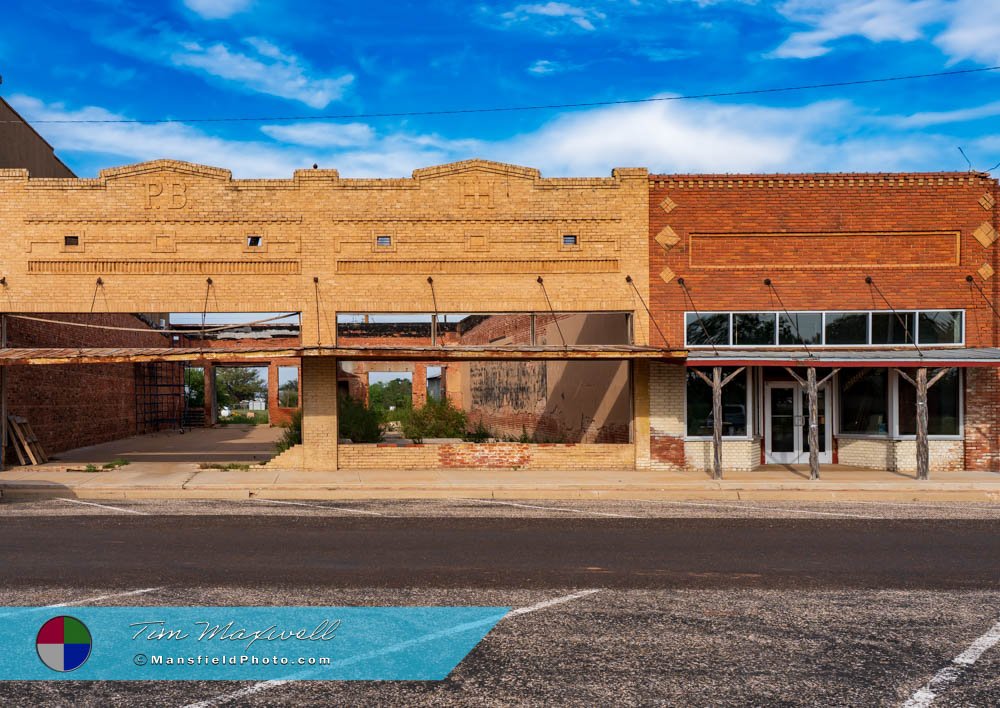Mansfield Photography
Matador, Texas
– Named for the Famous Ranch.
Matador, Texas, has an intriguing name that traces back to its ranching roots. The town is named after the Matador Ranch, one of the largest and most famous ranches in Texas history. Established in the late 19th century, the ranch took its name from the Spanish word for a bullfighter, which represented the rugged and resilient spirit of the area’s early settlers and ranchers.
Early Settlement and Growth
The town was settled in 1882, when the Matador Ranch was officially founded by Henry H. Campbell. The ranch, owned by British investors, became a major cattle operation, attracting settlers to the region. The town was established to support the ranch and its workers, providing goods, services, and a place for social gathering. In 1891, it was designated as the seat of Motley County, cementing its role as a regional hub.
The History of Matador
The town’s history is deeply connected to the cattle industry, which shaped its economy and culture for many decades. In its early years, the town was primarily a ranching community, and the Matador Ranch was the lifeblood of the area. By the early 20th century, the ranch encompassed hundreds of thousands of acres, making it one of the most prominent cattle operations in the state.
In 1951, the ranch was sold off in smaller parcels, and the town transitioned into a more diversified agricultural town. Cotton, wheat, and other crops became more prominent in the region. Despite these changes, ranching still plays a vital role in the local economy, and the Matador Ranch remains an iconic part of the town’s heritage.
Downtown
The downtown area is a charming reflection of its history. Visitors will find a few historic buildings, including the Motley County Courthouse, built in 1891, which serves as a testament to the town’s early days. The downtown area features local businesses, cafes, and shops that cater to both residents and visitors. Though small, the town has a tight-knit community that values its heritage and embraces its rural character.
Interesting Facts
The Local Airfield: During World War II, the town had a small airfield that served as a training base for pilots, adding a unique chapter to the town’s history.
Matador Ranch: The town’s namesake, the Matador Ranch, is still operational and spans over 130,000 acres, continuing to raise cattle to this day.
Motley County Museum: Housed in the old First National Bank building, the Motley County Historical Museum offers a glimpse into the area’s rich ranching history, with exhibits on the early settlers and artifacts from the ranching era.
📸 Interested in More Photos of This Town?
Matador Today
Today, the town remains a small, quiet town with a population of just over 600 people. Its proximity to Caprock Canyons State Park makes it a popular stop for visitors exploring the Texas Panhandle. Though the population is small, the community is proud of its ranching history and continues to honor its past through local events and cultural preservation efforts.
The Matador Ranch continues to operate as one of the town’s key landmarks, and agriculture remains the backbone of the local economy. The town’s school, Motley County ISD, serves as the heart of the community, bringing residents together for school events and activities.
Conclusion
Matador, Texas, may be small, but its history is vast and deeply rooted in the ranching traditions of the American West. From its early days as the headquarters of one of Texas’s largest ranches to its role as a quiet agricultural town today, Matador has retained its charm and sense of community. Whether you’re visiting for a taste of its rich history or passing through on your way to Caprock Canyons, Matador offers a unique glimpse into the heart of rural Texas.






